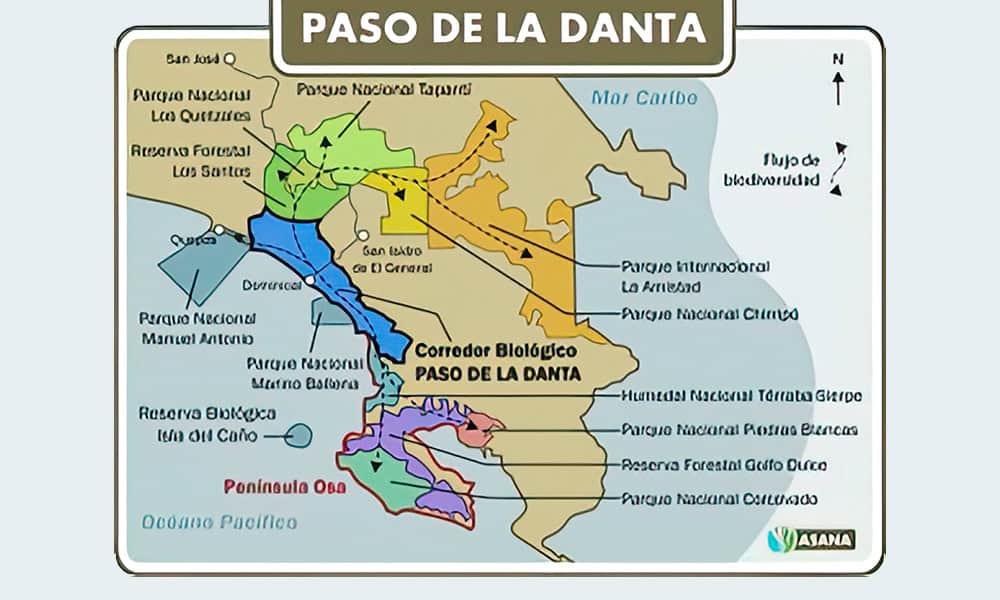The Osa Environmental Prosecutor’s Office has received a court order to stop a residential construction project in the Paso la Danta Biological Corridor in Portalón de Savegre, Quepos, after it was found to be illegally built within a protected forest. The ruling requires the responsible company to dismantle structures near a creek, restore affected water bodies and forest areas, and implement measures to prevent landslides.
A joint inspection by the National Environmental Technical Secretariat (SETENA) and the Public Prosecutor’s Office confirmed that the construction site is within a forested area, where Costa Rica’s environmental laws prohibit development. The company allegedly submitted documentation that falsely claimed the land was suitable for construction and not part of a forest, leading SETENA to initially grant approval. Following the inspection, SETENA revoked the permit, and the court intervened to halt the project.
The case is under investigation for alleged environmental crimes, including land use change, illegal logging, illegal use of forest resources, water theft, destruction of vegetation in a protected area, logging in a protected area, invasion of a protected area, and document forgery. These charges reflect violations of Costa Rica’s Forestry Law (No. 7575) and Water Law (No. 276), which carry significant penalties.
The Paso la Danta Biological Corridor, established in 2000 by the Asociación Amigos de la Naturaleza del Pacífico Central y Sur (ASANA), spans 82,128.17 hectares across the areas of Aguirre, Osa, Pérez Zeledón, and Dota. Stretching between the Savegre and Terraba Rivers, it connects vital ecosystems, supporting biodiversity and species like the tapir, jaguar, and puma. Costa Rica’s Constitution (Article 50) and environmental laws protect such areas to ensure ecological balance.
The court’s action follows a similar case in Dominical de Osa, where a culvert over water bodies was ordered removed due to environmental damage. While unrelated, these cases highlight increased scrutiny of development in protected zones. Local environmental groups have expressed support for the prosecutor’s efforts, emphasizing the corridor’s role in preserving Quepos’s natural heritage and Costa Rica’s global conservation reputation. The investigation continues, with authorities urging residents to report suspicious activities in protected areas.






